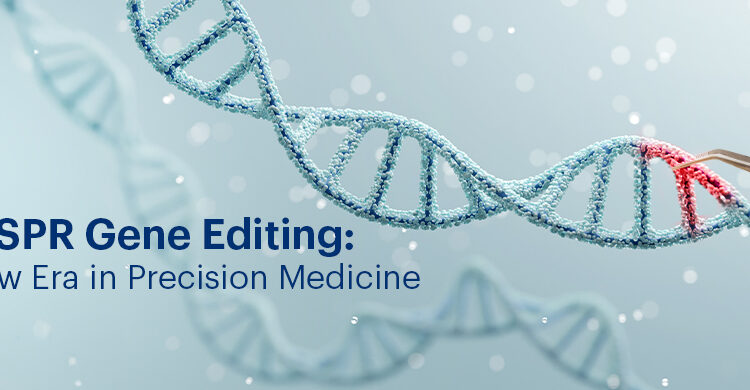Cancer remains one of the most complex and relentless health challenges of our time. Despite remarkable strides in early detection, personalized cancer therapies, and immunotherapy, millions of lives are still disrupted by its impact every year. Behind every statistic is a patient hoping for more time, a family praying for answers, and a healthcare system racing to stay one step ahead. But breakthroughs in cancer care do not happen in isolation. They are built on knowledge shared, insights exchanged, and expertise harnessed from the very frontlines of cancer treatments – the oncologists. That is why MDForLives is bringing together a global network of oncology professionals who are treating cancer alongside transforming how the world understands and treats it.
Through a series of carefully designed, ethically conducted oncology surveys, MDForLives empowers oncologists to contribute their clinical experience to the larger research ecosystem. Today, over 8,000 oncologists across the globe are already part of this mission. They are helping pharmaceutical companies, research institutions, and policymakers fine-tune the next generation of cancer therapies, thus shaping the future of oncology from the inside out.
And now, you have the opportunity to join them!
Why Oncologists are Central to MDForLives’ Mission to Advance Cancer Therapies
The answer is simple – real-world expertise is the missing link in clinical cancer research, and no one holds that knowledge more deeply than practicing oncologists.
MDForLives was founded on the belief that the future of cancer therapy or medication should not be shaped solely in labs or corporate boardrooms. It should be co-created with the professionals who treat patients every day, who understand the nuances of care, and who witness the real-world impact of cancer therapies far beyond clinical trial settings.
In oncology, where the stakes are higher and science is rapidly evolving, this collaboration becomes even more critical. Cancer is not one disease, it has hundreds of subtypes, patient profiles, and unpredictable responses. We realized that oncologists are not just end-users of innovation, they are catalysts for it. Their feedback on treatment efficacy, side effect management, evolving patient needs, and access gaps can directly influence the design, refinement, and success of breakthrough cancer medications and therapies.
What Made 8,000+ Oncologists Join MDForLives

Across continents, from bustling urban centers to rural clinics, over 8,000 oncologists have already joined MDForLives. The best part – this number is not stagnant; it continues to grow! Wondering, what draws them in? Well, it is the chance to shape innovation in cancer treatment options. Their voices are not just heard but acted upon. Every insight helps refine the tools and therapies used in oncology care.
But what makes MDForLives such a compelling choice for oncologists across the globe? Let’s find out!
1. A Real Opportunity to Shape the Future of Cancer Therapies through Cancer Therapy Survey
In a world where decisions about cancer therapies are often made in labs or boardrooms, many physicians feel disconnected from the larger research narrative. MDForLives offers a powerful alternative, a direct channel were clinical insights from real-world practice shape real-world solutions.
For oncologists, it is an opportunity to:
- Bring attention to unmet needs in specific patient populations
- Share frontline observations that could spark new clinical trials or cancer treatment protocols
- Contribute to health equity by highlighting regional gaps in cancer care
Every completed oncology survey acts as an informed push toward more patient-centered, effective, and accessible cancer therapies.
2. Flexibility That Respects an Oncologist’s Time
Oncologists are among the busiest professionals in healthcare. Between managing complex cases, staying updated on rapidly evolving cancer treatments, and navigating emotionally charged patient interactions, time is always in short supply. MDForLives respects that.
Therefore, we have curated paid oncology surveys that are brief, focused, and designed for efficiency. They can be completed on a laptop or mobile device, from home, during breaks, or between appointments. There is no requirement to attend webinars, presentations, or long interviews.
This low-effort model ensures that even the busiest oncologists can participate meaningfully without disrupting their schedules or compromising cancer patient care.
3. Recognition Through Fair Compensation
In an industry where clinical insight is invaluable yet often undervalued, MDForLives ensures that oncologists are compensated fairly for their knowledge related to patient care or therapies for cancer.
Each oncology survey completed comes with a clear, upfront reward structure that reflects:
- The time required
- The complexity of the subject matter
- The unique value of first-hand clinical knowledge
4. A Global Community of Purpose-Driven Professionals
Perhaps one of the most powerful reasons oncologists join MDForLives is the sense of belonging to something larger than themselves.
On the platform, oncologists connect with a global peer group, fellow specialists who share the same mission: to drive forward the future of cancer care.
Through this shared purpose, MDForLives fosters:
- Cross-border learning and exposure to new trends
- A sense of professional solidarity beyond geographical and institutional boundaries
- A growing movement where clinical voices are unified in shaping global research priorities
Whether you are in New York, London, or Munich, your voice becomes part of a global conversation that is changing the future of oncology.
Latest Collaboration that Sparked a Change in Cancer Treatments
MDForLives’ most recent oncology survey explored frontline oncologists’ perspectives on Tyrosine Kinase Inhibitors (TKIs). As a groundbreaking class of targeted therapies, TKIs are reshaping how we approach and treat various cancers. The collaboration took a deep dive into the real-world use, challenges, and unmet needs surrounding TKIs, drawing on insights from oncologists worldwide.
What was the survey about?

The survey focused on a critical question: How satisfied are oncologists with the safety profile of currently approved TKI cancer drugs?
While these cancer therapies used across Chronic Myeloid Leukemia (CML), non-small cell lung cancer, HER2-positive breast cancer, and more have revolutionized outcomes, concerns remain about long-term tolerability and patient adherence.
Participants were asked about their experiences with commonly used TKIs, their satisfaction with efficacy vs. safety balance, and what improvements they would most like to see in next-generation versions.
Key findings from the cancer drug survey:
- 40% of oncologists surveyed voiced concerns about safety, calling for better toxicity management and a more favorable adverse-event profile.
- This was not a niche concern – it reflected a widespread recognition that long-term tolerability matters as much as potency, especially in chronic management settings.
In addition, the survey highlighted:
- Widespread use of TKIs across specialties, with approximately 82% of oncologists aware of emerging TKI agents across various tumor types (e.g., Sotorasib, Ruxolitinib).
- Notably, about 40% reported prescribing high-impact TKIs like Tagrisso (Osimertinib) and Gleevec (Imatinib) as part of routine practice, underscoring their clinical value.
- Oncologists also cited pharma partnerships (e.g., AstraZeneca, Novartis) as key to accessing effective TKI cancer drugs.
How did this cancer drug survey help?
The insights gathered from this survey have already begun to influence critical decisions across the oncology research and cancer drug development ecosystem in the following ways:
1. Reframing Safety as a Priority in TKI Development
The finding that 40% of practitioners demand better safety profiles has prompted pharmaceutical partners and researchers to reconsider how emerging TKIs are designed – not just for efficacy, but also tolerability.
2. Informing Clinical Trial Design
Biotech and pharma companies are now designing Phase II/III TKI cancer drug trials to track both safety and treatment outcomes, making them more relevant to real-world practice.
3. Aligning Innovation with Clinical Expectations
Cancer medication developers are now studying feedback such as:
- Which adverse events are most disruptive in long-term TKI use
- Optimal dosing strategies to balance potency and side effects
- Region-specific safety concerns vary across patient populations
- This direct clinician input strengthens the bridge between molecular innovation and bedside care
4. Encouraging Clinician-First Design
The survey emphasized the need for tools and protocols designed with the users – the oncologists at their core, not simply patients or institutions. This enhances engagement, applicability, and impact.
To know in-depth about this oncology survey, you must click on this link.
Looking Ahead: Your Role in What Comes Next
We are entering a new era in cancer treatment. An era of personalization, precision, and purpose. But innovation alone does not change lives. Real progress in oncology comes when the clinicians shaping patient care help shape cancer therapies themselves. That is why MDForLives exists – to bring your voice (the oncologist’s voice), into the center of medical innovation.
Every oncology survey you take is more than just a form to fill in. Rather, it is an opportunity to influence clinical trial designs, guide pharmaceutical priorities, and improve therapies for cancer worldwide.
You do not need to leave your practice, attend conferences, or publish papers. You just need to speak up and we will make sure your insights reach the people who need them most – the researchers, the cancer medication manufacturers, etc.
Be part of shaping what is next in oncology. Join MDForLives and co-create the future of cancer treatments!
Read about
Oncologist Impact on Cancer Drug Development
Cancer Survivor Community – MDForlives
FAQs
-
What types of cancer-related surveys will I receive?
Surveys span a variety of topics including cancer drugs safety, treatment efficacy, access and equity in patient care, clinical challenges, unmet needs, and perspectives on emerging cancer therapies. All surveys are focused, relevant, and designed for oncology professionals.
-
How long do the surveys take to complete?
Most oncology surveys are short and structured to respect your time. They typically take 10–20 minutes and can be completed on your phone, tablet, or computer, at your convenience.
-
Do I have to attend webinars or meetings?
No. Participation is completely asynchronous, and survey based. There are no webinars, conference calls, or presentations to attend. All you have to do is just participate in targeted surveys on cancer therapies, drugs, etc., at your convenience.
-
How many surveys can I expect per month?
While the number varies based on your specialty and research needs, active oncologists typically receive 2–4 surveys per month. You’ll only receive relevant invitations that match your profile.

MDForLives is a global healthcare intelligence platform where real-world perspectives are transformed into validated insights. We bring together diverse healthcare experiences to discover, share, and shape the future of healthcare through data-backed understanding.








